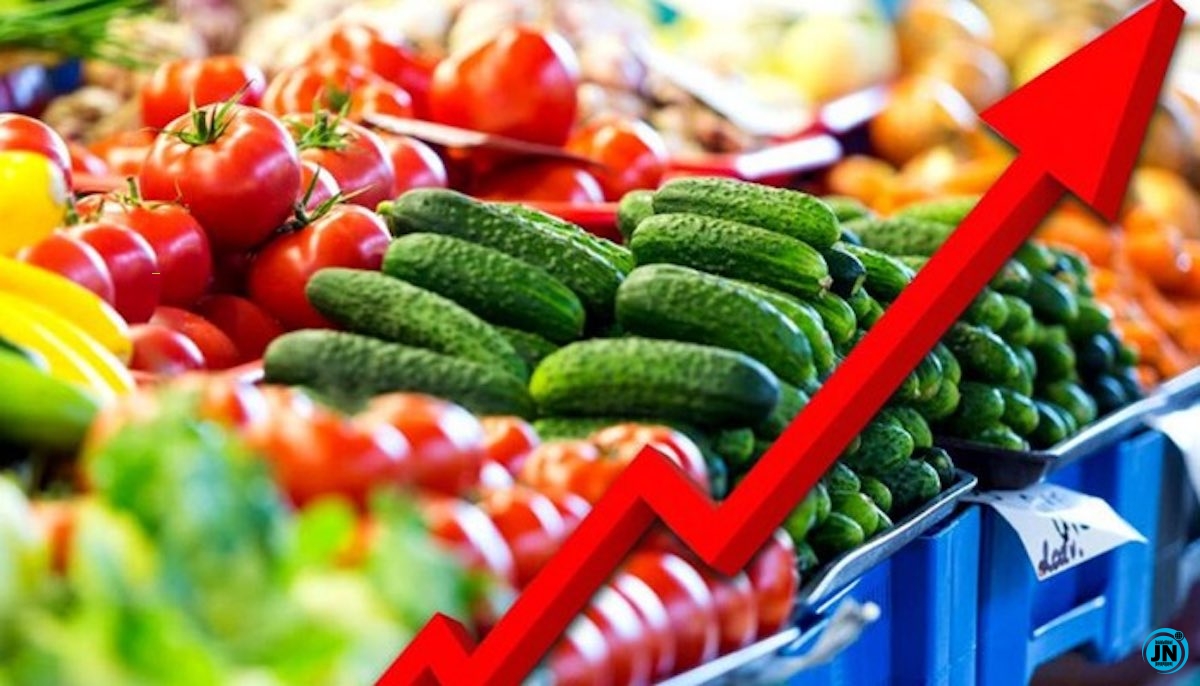
Nigeria’s inflation rate has risen significantly, reaching 34.6% in November 2024, an increase from 33.8% recorded in October. This data was revealed in the latest Consumer Price Index (CPI) report released by the National Bureau of Statistics (NBS).
This figure represents a substantial year-on-year increase of 6.4 percentage points when compared to the 28.2% inflation rate recorded in November 2023, highlighting a worsening economic trend over the past year.
On a month-on-month basis, inflation rose by 2.638% in November 2024. However, this rate was slightly lower than the 2.64% recorded in October, indicating that while prices are still rising, the pace of monthly growth has slowed marginally.
Food inflation crisis worsens
The inflation crisis in Nigeria has been most pronounced in the area of food prices. Food inflation skyrocketed to 39.93% in November 2024, compared to 32.84% during the same period in 2023. This marks a sharp increase in the cost of essential food items, severely impacting households across the country.
On a month-on-month basis, food inflation recorded a slight rise to 2.98% in November, compared to 2.94% in October, signaling sustained pressure on food prices.
The sharp increase in food inflation has been attributed to a rise in the cost of staples such as yams, maize, rice, guinea corn, and vegetable oil. Other notable contributors to the surge include dried fish, powdered milk, and frozen meat, which have also become significantly more expensive.
Over the past year, the average food inflation rate reached 38.67%, reflecting an increase of 11.58 percentage points compared to 27.09% recorded in November 2023. This prolonged increase underscores the growing challenges of food insecurity and affordability in the country.
Inflation trends across states
Inflation has not affected all states equally, with significant variations in food inflation rates observed across Nigeria:
Highest year-on-year food inflation rates were recorded in Bauchi (46.21%), Kebbi (42.41%), and Anambra (40.48%), where food prices surged the most.Lowest year-on-year food inflation rates were reported in Delta (26.47%), Benue (28.98%), and Katsina (29.57%), reflecting relatively milder increases.
Highest month-on-month food price increases were observed in Yobe (5.14%), Kebbi (5.10%), and Anambra (4.88%), indicating sharp short-term price hikes in these states.
Lowest month-on-month increases were recorded in Adamawa (0.95%), Osun (1.12%), and Kogi (1.29%), where price increases were more modest.
The NBS has attributed these trends to the rising costs of essential staples and persistent disruptions in food supply chains. These challenges highlight the urgent need for targeted policies to stabilize prices and improve food security across the country.
The report has sparked calls for stronger government interventions, as Nigerians grapple with the rising cost of living, with food prices remaining a key driver of inflation. Economists and stakeholders have urged authorities to implement measures to improve agricultural productivity, reduce import dependency, and address supply chain inefficiencies.

